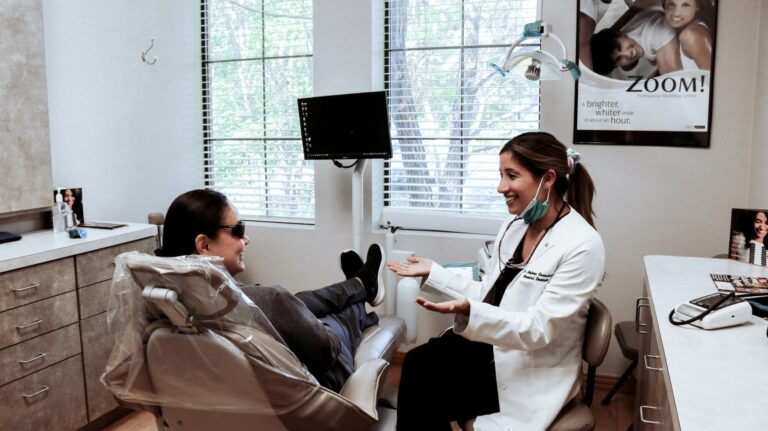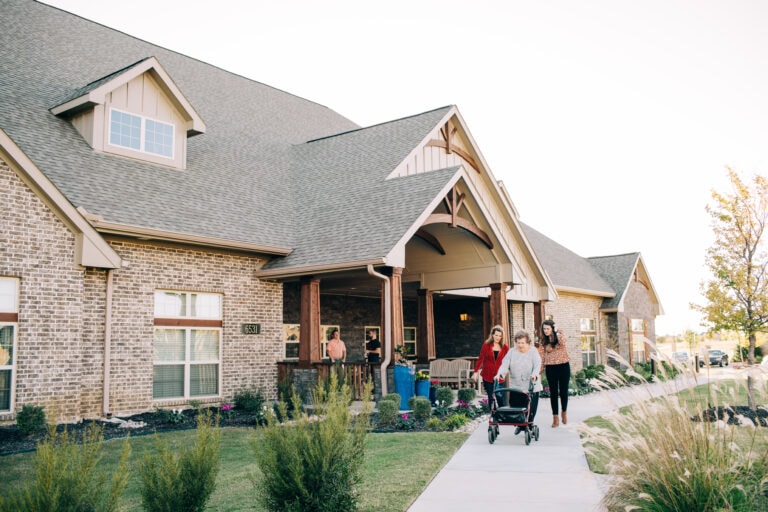Champions of Change
Connections Wellness Group
We’ve all had that family member or friend who struggled with mental health problems growing up. Granted, we were always there for them to offer love and support, but we couldn’t help but notice other people looking at them differently. They categorized them as weird, shamed them for asking for help, showed a lack of patience, and perhaps even told them to “just get over it.” And it wasn’t just kids saying that. Even adults failed to understand and accept their struggles.
All these years later, the team at Connections Wellness Group sees these scenarios play out time and again. There is a real stigma surrounding mental health, from depression and anxiety to body image issues, behavioral problems, thoughts of suicide, etc. — and it’s preventing more children and adults from getting the help they need than you might think.
“Mental health impacts people of all ages, whether they be 6 years old or 70 years old,” said Amber Gould, Chair of the Champions of Radical Change Committee. “With school starting and dealing with the COVID-19 pandemic, we want to be able to help everyone in the community at any stage in their life.”
She added, “We want to make it easier for people to ask for help and 100% know it is okay to do so.”
No one does that better than Connections Wellness Group. Yes, they have reinvented the wheel by consistently delivering a full wellness model for their patients, from family counseling to day treatment, nutritional wellness, and everything in between. But their bread and butter is being champions for radical change when it comes to kicking the stigma on mental health. Simply put, it’s okay not to be okay, and more people need to realize it. To play their role in the process, Connections Wellness has hired the best of the best to handle the most clinically challenging of circumstances, whether in-person or through teleservices. Their PHP and IOP programs have since become nationally accredited.
“I’d be overwhelmed by everything we do if I was alone in the effort. But I’m not,” said Dr. Syed Nizami, a child and adolescent psychologist and the medical director for the PHP and IOP programs. “It’s very doable to address it all.”
Nizami said there are several keys to this. The first is getting to individuals at an earlier age. We live in a comparison culture, and children as young as 4 and 5 years old face everything from bullying to simply not fitting in and difficulties at home. As they get older, eating disorders, social media, school, and other issues creep in and make managing their issues more challenging. And if those issues continue to go unrecognized — either because that child chooses to suffer in silence or adults don’t recognize a problem exists, it can create bigger issues down the line.
Connections Wellness Group has eleven locations across DFW and provides mental health services that assist patients as young as 3 years old. This includes psychiatry, individual therapy intervention, family therapy, group therapy, and play therapy. Connections currently offers 4-hour programs per day for teens and adults that include a wide array of services in a packaged approach: Process groups, psycho-educational groups, experiential groups, psychiatric evaluations, nursing evaluations, and medication education. Their therapies include cognitive-behavioral, solution-focused, dialectical behavior, motivational interviewing, cognitive processing, rational emotive behavior, SMART recovery, and many other services depending on the need.
“One of the main reasons I decided to work with children was that time after time, I was seeing adults and looking into their history to find that many of their issues started when they were children,” Nizami said. “Those issues were never addressed, and you wonder, ‘Why didn’t they get help sooner?’ If we can work with someone sooner, even as a child, we can completely change the trajectory of their life.”
Tiffany Godwin, the team’s dietician, also stressed the importance of nutrition and how it correlates to mental health.
“When you are experiencing things like anxiety and depression, your appetite is affected,” Godwin said. “There are people I talk to who only eat once a day because that’s all they can handle. They deal with body image issues, eating disorders, and all types of things. You don’t have to be scared to come to talk to us about those things.”
Gould agreed.
“I had family, friends, and even myself who grew up dealing with various issues, and it’s interesting how you’re automatically thrown into situations where you’re told to just get over it,” Gould said. “That’s not something you just get over. It’s something you must keep working on and get help for. We want to help as many people as we can.”







